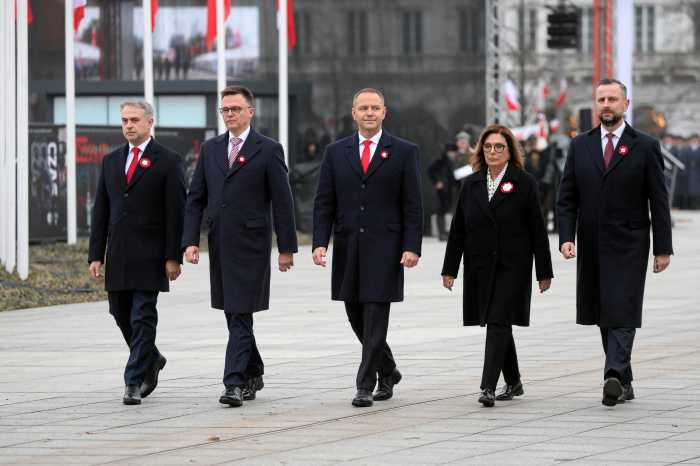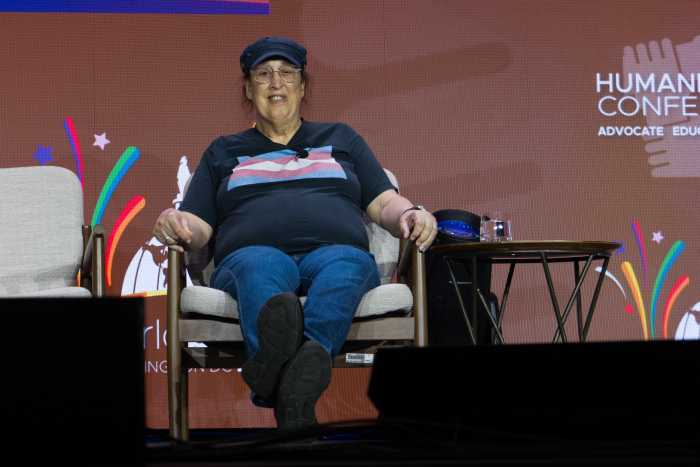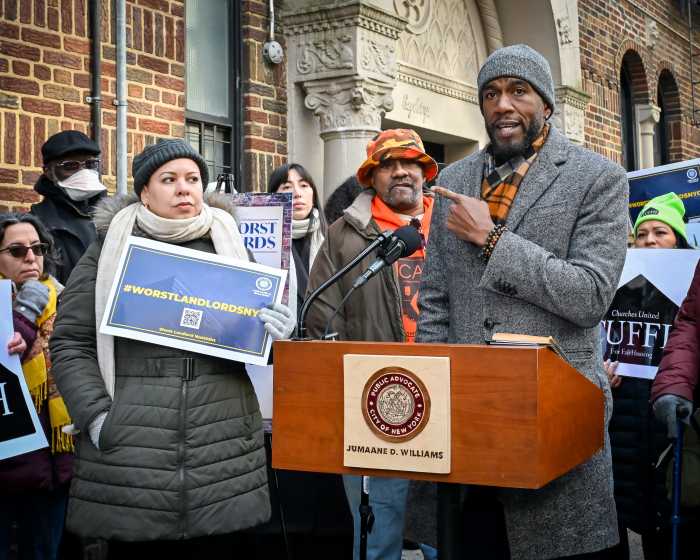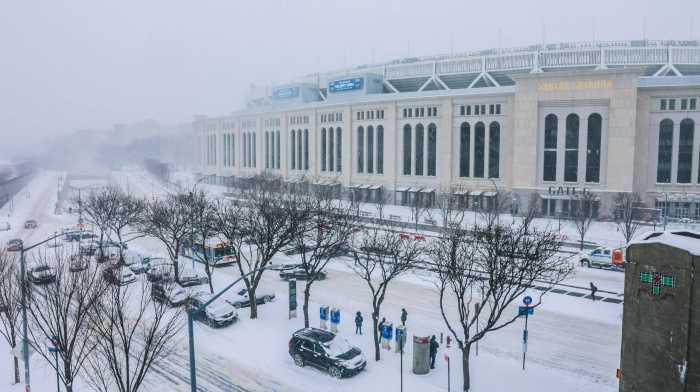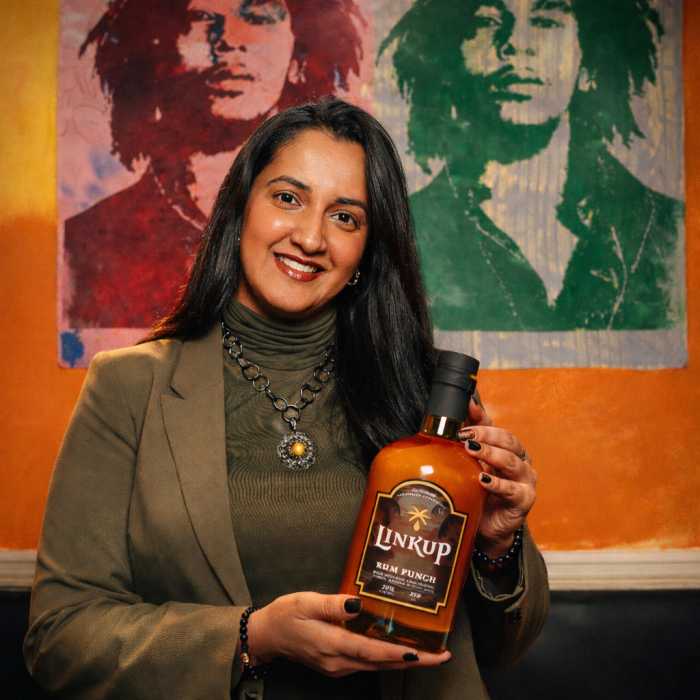BY DOUG IRElAND | In the West African nation of Senegal, a former French colony which is 95 percent Muslim, the arrests over the weekend of February 2-3 of nine men and one woman whose photos appeared in a hostile magazine report about a gay marriage ceremony has unleashed a wave of media hysteria and calls for an aggressive campaign against homosexuals by the country's Islamic religious leaders.
The ten arrestees were charged with “crimes against nature.”
Photos run in homophobic mag fire Islamist demands for crackdown.
The arrests followed the publication of an illustrated article on gay marriage by the magazine Icones. The piece was part of an accumulating homophobic dossier by Icones, whose editor, Mansour Dieng, “likes to call himself 'a guardian of moral rectitude,'” according to the French-language website Afrik.com. The website reports that he published the photos after writing a January 20 editorial warning against a rising tide of homosexuality “destroying” Senegal's youth.
“I had to prove that what I said was true,” Dieng said in an interview, adding that he had been “congratulated” by the Senegalese Department of Criminal Investigations for “having revealed the existence of such practices.”
Numerous photos published by the magazine, and reprinted in many Senegalese daily newspapers, showed the couple – said to be a Senegalese man and a man from either the Ivory Coast or Ghana – exchanging rings, cutting their wedding cake, as several young Senegalese men in female attire served as “hostesses,” and dozens of wedding guests in ordinary attire looked on. Ndeye Marie Gawlo, a famous Senegalese chanteuse, performed at the ceremony, and was also arrested. Police are said to be hunting for others pictured in the photographs.
The gay wedding took place in a hostelry in the costal resort town of Petit Mbao, whose hotels, bars, and nightclubs are reported by Senegalese media to be frequented by gay people. According to an on-scene report for a Senegalese radio station, WALF-FM, reprinted on Seneweb, a French-language online site, since the arrests, “the seaside resort has been deserted by the homosexual fauna, and locals are calling for a police clean-up to permanently rid the area of the undesirables.”
Five of those arrested, who had connections to government officials – including one white French citizen – were released within 24 hours, while the singer and the remaining four men were held until February 6. The arrestees' release pending trial provoked an outcry from the Collective of Islamic Associations of Senegal (CAIS), which represents 15 Islamic organizations; from Islamist political parties; and from prominent imams, who called for a protest march.
In a press release entitled “The Homosexual Marriage – Act Before It's Too Late!” and widely reprinted under homophobic headlines in the local press, the Islamists of CAIS thundered, “None of the faithful, none of the imams and oulemas and preachers, should remain indifferent in the face of these repeated assaults by these enemies of our faith and of its morality, who do not hesitate to be out-in-the-open aggressors against the sacred values of our religion, and who are trying to destabilize our society.”
Imams throughout the country dedicated their sermons on the Friday following the release of those arrested to denunciations of homosexuality.
“There is a general panic among our gay people and, since the arrests and the media hysteria surrounding them, more and more are fleeing the country, at least temporarily,” said S., a 28-year-old Senegalese gay activist and one of the leaders of And Ligeey, Senegal's gay and lesbian support group, whose name means “Let's Work Together” in Wolof, the language of Senegal's dominant ethnic group. S.'s full name cannot be used for his own safety. Homosexuality is illegal in Senegal and he also fears reprisals against his family if his activism becomes public.
“Most of those arrested were members of our association,” said S., who spoke in French with this reporter by telephone from the Senegalese capital of Dakar. “Two of them had been seriously injured when they jumped from the third floor of the building where they were when the police raid occurred, trying to avoid arrest. One broke his leg, the other had facial injuries, but they were refused medical treatment in jail.”
S. continued, “During their police interrogation, those arrested were pressured to name all the homosexuals they knew, but several of them named prominent imams who are well-known to be homosexual. Because the Organization of the Islamic Conference (OIC) will be holding its next meeting here in mid-March, it wouldn't do for prominent imams to be arrested or named in the press as homosexuals, so their ploy of naming the imams helped speed their release.”
(The OIC is composed of 57 nations, making it the second largest international organization after the United Nations.)
S. went on to say that “two of those arrested were AIDS workers with the National Alliance Against AIDS (ANCS), the leading AIDS education and prevention group here in Senegal, with which we at And Ligeey work closely. Senegal will be host of the upcoming International Conference on AIDS and STIs in Africa, scheduled to take place in Dakar in December 2008, and pressure on the government from the World Health Organization and other AIDS-fighting groups helped secure their release.”
Several of those arrested had participated in a January conference on HIV and men having sex with men organized in Bamako, Mali by the French AIDS group AIDES. A joint press release from AIDES and two other French groups, SIDACTION and ACT UP, demanded the immediate release of all those arrested and condemned “Senegal's schizophrenia – they accept funding from the Global Fund to Fight AIDS for programs targeting men who have sex with men, thereby recognizing the existence of gay practice, but then at the same time hunt down and violently oppress gay Senegalese,” which harms the fight to prevent AIDS.
According to S., many Senegalese doctors refuse to treat the HIV-positive, either out of homophobia or the fear of being labeled as pro-homosexual or gay themselves, while many who have the virus “do not dare to go to hospital because they're afraid of being blacklisted and stigmatized as homosexuals.”
A February 4 press release from the International Gay and Lesbian Human Rights Commission denouncing the arrests helped alert the world to the developments in Senegal.
“Everybody in the gay community in Senegal is afraid, there is pure panic,” said Joel Gustave Nana, the 25-year-old West Africa specialist for IGLHRC based in Johannesburg, and who returned last Friday from a quick trip to Senegal he undertook as soon as he learned of the arrests. Nana told Gay City News, “While I was in Senegal, every TV station was carrying extremely homophobic reports on the arrests and on the release of the prisoners every few hours, and all the newspapers were filled with sensationalist, gay-baiting coverage of the affair.”
Those arrested were referred to in many scare newspaper headlines as “gordjiguene,” a pejorative Wolof word meaning “man-woman.”
“I was able to meet with all the men released on February 6, and they told me they are afraid to go back to their families after their arrests and the publication of their photos in the press outing them,” Nana said. “They feel they have to get out of Senegal, that they can no longer live in their families, and must go to some other country where they can breathe.”
Dieng, the editor of the magazine that published the photos, gave interviews to the Senegalese news media claiming that he had received death threats from those pictured, an assertion that made its way into reports from respectable international media like the BBC. But, said gay activist S., “That's completely false, it's a pure invention of the editor. The men whose photos were published and those who were arrested were so afraid for their lives that they had no desire or time to make any such threats. I can assure you that this is so because they were all members of our association.”
S. went on to say, “The photographs were taken by a professional photographer, a closeted bisexual who frequents the gay milieu, who was hired by those who planned the wedding ceremony. But when he gave the developed pictures to the gay couple, he claimed he had 'lost' the negatives – and he later sold them to the magazine for around $3,000.”
In Senegal, S. explained, “arrests of gay people are very, very frequent. Bars and nightclubs frequented by gays are regularly targeted for police raids, as are those areas known to be gay cruising spots.”
Frequently, said S., “those who are arrested are blackmailed by the police and forced to pay large sums in exchange for their freedom. Those who cannot afford to pay bribes are sent to jail, for anywhere from two months to five years, and subjected to fines of 1 million Central African Francs,” about $2,200, more than the average annual wage in Senegal.
“It is impossible to know the real number of gays who have been imprisoned because they are homosexuals, because quite often the charges against them are changed before trial to 'creating public disorder' or other crimes, because the authorities don't want to attract unwanted publicity from denunciations of the repression of gays by international human rights organizations,” S. told this reporter.
He said his group, And Ligeey, was founded in 1979, and has 1,410 members throughout the country. “We have discussions about how to get out of this deadly homophobic situation, we put on educational theater pieces and have other educational activities,” S. explained, “although all this has to be done in a clandestine way, with great difficulty.”
IGLHRC's Nana told Gay City News that the situation in Senegal is so dire he is returning there this coming Saturday.
Doug Ireland can be reached through his blog, DIRELAND, at http://direland.typepad.com/direland/.

